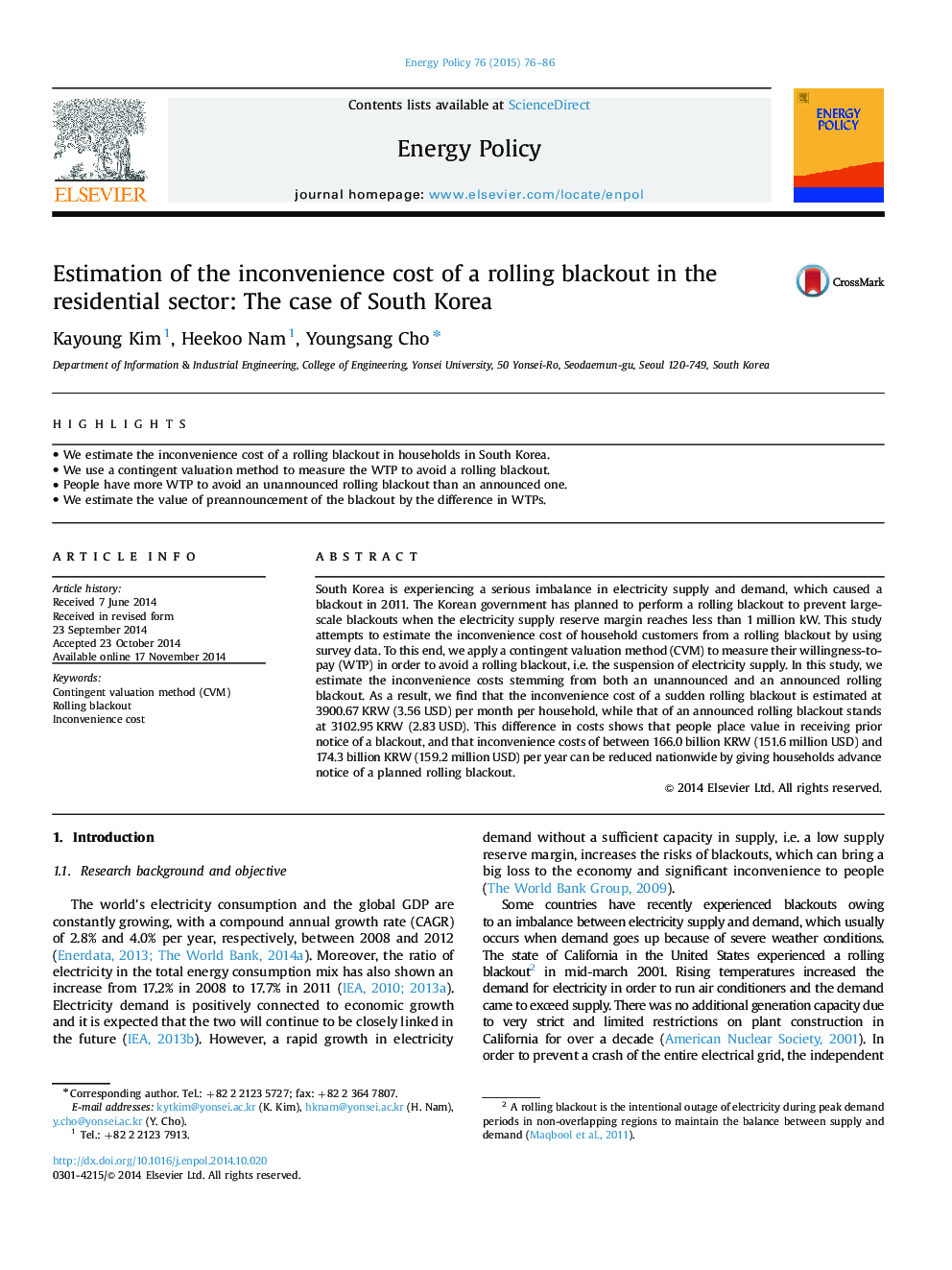| کد مقاله | کد نشریه | سال انتشار | مقاله انگلیسی | نسخه تمام متن |
|---|---|---|---|---|
| 992868 | 1481282 | 2015 | 11 صفحه PDF | دانلود رایگان |
• We estimate the inconvenience cost of a rolling blackout in households in South Korea.
• We use a contingent valuation method to measure the WTP to avoid a rolling blackout.
• People have more WTP to avoid an unannounced rolling blackout than an announced one.
• We estimate the value of preannouncement of the blackout by the difference in WTPs.
South Korea is experiencing a serious imbalance in electricity supply and demand, which caused a blackout in 2011. The Korean government has planned to perform a rolling blackout to prevent large-scale blackouts when the electricity supply reserve margin reaches less than 1 million kW. This study attempts to estimate the inconvenience cost of household customers from a rolling blackout by using survey data. To this end, we apply a contingent valuation method (CVM) to measure their willingness-to-pay (WTP) in order to avoid a rolling blackout, i.e. the suspension of electricity supply. In this study, we estimate the inconvenience costs stemming from both an unannounced and an announced rolling blackout. As a result, we find that the inconvenience cost of a sudden rolling blackout is estimated at 3900.67 KRW (3.56 USD) per month per household, while that of an announced rolling blackout stands at 3102.95 KRW (2.83 USD). This difference in costs shows that people place value in receiving prior notice of a blackout, and that inconvenience costs of between 166.0 billion KRW (151.6 million USD) and 174.3 billion KRW (159.2 million USD) per year can be reduced nationwide by giving households advance notice of a planned rolling blackout.
Journal: Energy Policy - Volume 76, January 2015, Pages 76–86
